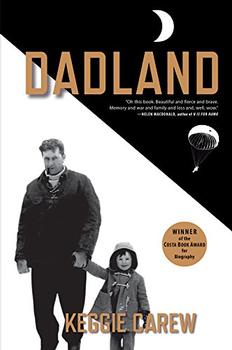Summary | Excerpt | Reviews | Beyond the book | Read-Alikes | Genres & Themes | Author Bio

An Armenian Odyssey
by Dawn Anahid MacKeenAn epic tale of one man's courage in the face of genocide and his granddaughter's quest to tell his story.
In the heart of the Ottoman Empire as World War I rages, Stepan Miskjian's world becomes undone. He is separated from his family as they are swept up in the government's mass deportation of Armenians into internment camps. Gradually realizing the unthinkable - that they are all being driven to their deaths - he fights, through starvation and thirst, not to lose hope. Just before killing squads slaughter his caravan during a forced desert march, Stepan manages to escape, making a perilous six-day trek to the Euphrates River carrying nothing more than two cups of water and one gold coin. In his desperate bid for survival, Stepan dons disguises, outmaneuvers gendarmes, and, when he least expects it, encounters the miraculous kindness of strangers.
The Hundred-Year Walk alternates between Stepan's saga and another journey that takes place a century later, after his family discovers his long-lost journals. Reading this rare firsthand account, his granddaughter Dawn MacKeen finds herself first drawn into the colorful bazaars before the war and then into the horrors Stepan later endured. Inspired to retrace his steps, she sets out alone to Turkey and Syria, shadowing her resourceful, resilient grandfather across a landscape still rife with tension. With his journals guiding her, she grows ever closer to the man she barely knew as a child. Their shared story is a testament to family, to home, and to the power of the human spirit to transcend the barriers of religion, ethnicity, and even time itself.
The Hundred-Year Walk is difficult to read, as it's never easy to read about people being cruel to each other – or even worse, dispassionately killing them or allowing them to die. It is however, an important book that reminds us that humanity is capable of such acts. It's both well-written and compelling, and highly recommended to anyone who wishes to know more about the Armenian genocide or who has an interest in stories about survival in the face of near-certain death...continued
Full Review
 (886 words)
(886 words)
(Reviewed by Kim Kovacs).
In The Hundred Year Walk, author Dawn MacKeen mentions observations made by non-Turkish individuals who were unwilling witnesses to the Armenian Genocide. One person she cites several times is Henry Morgenthau, Sr. (1856-1946), who was the United States Ambassador to the Ottoman Empire from 1913 to 1916, and as such bore witness to actions the Turkish government took against its Armenian citizens and did everything in his power to make sure those in the United States knew exactly what was taking place. .
Morgenthau immigrated to the United States in 1866 with his family, Jewish German expatriates who moved to New York after the U.S. Civil War. After graduating from Columbia Law School, Morgenthau was a successful lawyer and made a ...

If you liked The Hundred-Year Walk, try these:

by Keggie Carew
Published 2018
A spellbinding journey into surprising and shady corners of twentieth-century politics, a rackety English childhood, the poignant breakdown of a family, the corridors of dementia and beyond.

by Aline Ohanesian
Published 2016
Moving between the last years of the Ottoman Empire and the 1990s, a story of passionate love, unspeakable horrors, incredible resilience, and the hidden stories that haunt a family.